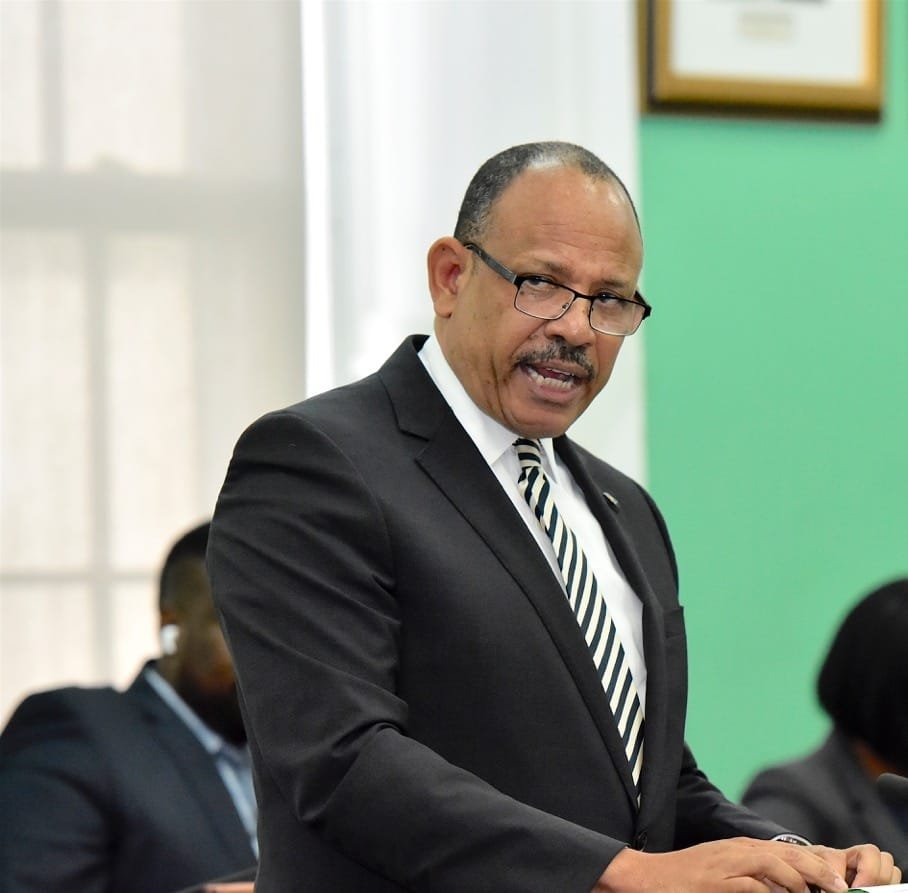Bahamas’ case fatality rate at 17.2 percent; global projection is four percent
NASSAU, BAHAMAS — As The Bahamas undergoes a “surge” of COVID-19 cases that have yet to peak, Minister of Health Dr. Duane Sands said today the government is exploring the introduction of wider testing at a community level.
To date, over 300 people have been tested.
There have been 29 confirmed cases and five deaths, giving The Bahamas a case fatality rate of over 17 percent — four times higher the projected global CFR rate.
“We are exploring the introducing of rapid testing,” Sands advised Parliament.
“The first step in the process requires in-country validation of the rapid serological testing.
“Once this validation is completed, wider screening for COVID-19 at the community level will commence.”
The Bahamas has more than 10,000 rapid test kits in-country, Sands announced.
Molecular testing or PCR testing is done on the basis of evidence of an infectious patient, while serological testing or rapid testing requires a sample of blood from a suspected case or evidence of the body’s reaction to the virus.
“There are real constraints to up scaling molecular testing,” Sands said.
“Quite simply, there is not an unlimited supply of test kits, swabs and human resources in the National Reference Laboratory.
The Chinese embassy in The Bahamas recently donated 1,000 COVID-19 test kits to the Bahamian government.
The minister thanked the embassy and said he looks forward to the continued partnership of the Chinese government, as the battle against the virus continues.
The Bahamas recorded its first case of the virus on March 13, according to Sands.
However, health officials announced the case to the public during a press conference on March 15.
The hospitalized patient recovered and was able to leave the hospital.
In less than a month, cases have climbed to 29 cases — 23 in New Providence, five in Grand Bahama and one in Bimini.
Today, Sands said The Bahamas’ healthcare system will be “overwhelmed” on this current track.
Of the 29 confirmed cases, 11 patients have been hospitalized — three have become very ill while the other eight were stable.
He indicated two of the stable patients had qualified for discharge today.
Fourteen patients who presented with mild symptoms did not meet the threshold for hospitalization and remain home in isolation with daily monitoring for change in their clinical status.
Of those self-isolated COVID-19 patients, 10 cases have completed 14 days of isolation since their symptoms began and four of them have been approved for reclassification as recovered.
Sands said more than 300 social contacts of the 29 confirmed cases have been identified.
He revealed that two patients had contact with nearly 150 people — 91 and 49 respectively.
The minister said social tracing remains a top priority and efforts were ongoing to find additional contacts.
“The prime minister told the Bahamian people last week that he wanted all Bahamians to live and he wanted to live,” the minister said.
“Mr. Speaker, I also want to live, but already, we have lost five of our citizens.
“These citizens are fathers, mothers, daughters, aunts and uncles.
“These untimely deaths have left an unforgettable void in out country.”
An Eyewitness News analysis of cases in the region and case fatality rates (CFR) among several Caribbean countries, shows that while The Bahamas number of cases per capita was on par with numerous countries in the region, it’s death rate appeared notably higher.
The Bahamas CFR was over 17 percent as of Sunday.
As of last week, the CFR rate in Trinidad and Tobago was 5.5 percent.
As of the end of March, the CFR rate in Italy was 11 percent.
In China, it was four percent.
According to death rate guidelines of the virus, the CFR rate among older patients is higher — 14.8 percent among cases over 80-years-old, compared to the 3.6 percent death rate among patients aged 60 through 69.
The youngest among the patients who died in The Bahamas was 57.
The other patients who died were ages 67, 72, 79 and 80, according to Sands, who noted these cases were among the category of the most vulnerable.
He said 52 percent of patients who tested positive for the virus have ages that range between 40 and 59.
Sands presented the data as he declared The Bahamas is in a “fight to save lives and flatten the curve”.






